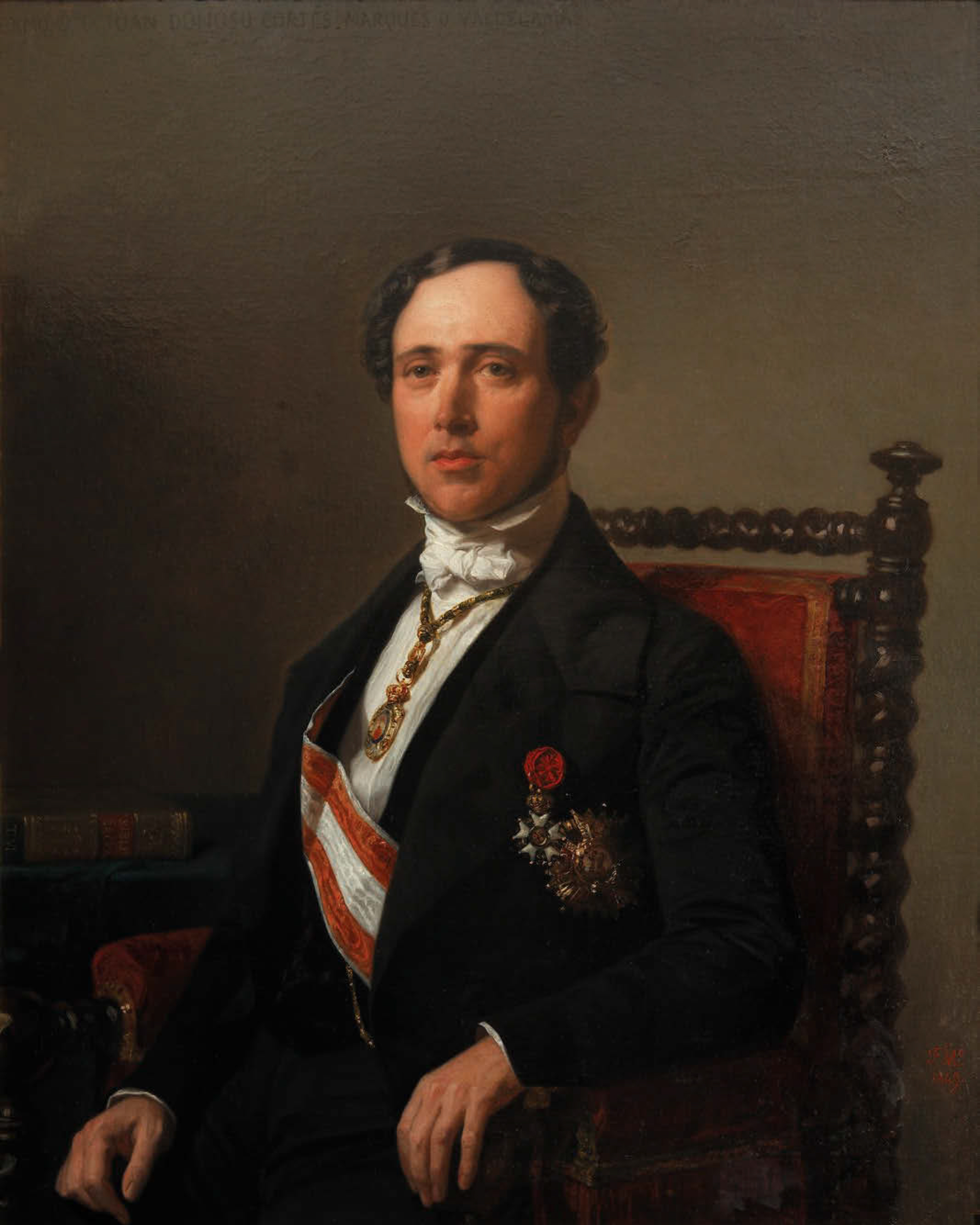Juan Francisco María de la Salud Donoso Cortés y Fernández Canedo, premier marquis de Valdegamas, né le 6 mai 1809 à Valle de la Serena, près de Badajoz , et mort le 3 mai 1853 à Paris, est un écrivain et homme politique espagnol. Il a développé une philosophie de l'histoire originale, pessimiste, providentialiste, et qui était devenue à la fin de sa vie une théologie de l'histoire ; elle mêle l'influence de Giambattista Vico et celle de plusieurs grands auteurs chrétiens, notamment saint Augustin et Bossuet. Les historiens de la pensée politique le placent en général dans le courant contre-révolutionnaire, au côté d'Edmund Burke, Louis de Bonald, et surtout de Joseph de Maistre, duquel il est le plus proche.
En tant qu'homme politique, il a joué un rôle important dans l'Espagne des années 1830 et 1840 : il conseille et soutient la régente Marie-Christine des Deux-Siciles, même après son exil en France. Il appuie par la suite le général Narváez, qui correspond à son idéal de la dictature militaire pour temps de crise. De son vivant, Donoso Cortés était célèbre dans toute l'Europe pour ses talents d'orateur, qu'il mettait en œuvre dans les discours qu'il prononçait aux Cortes, souvent longs, où abondent les références à la religion et à l'histoire universelle. Aujourd'hui, il est surtout connu pour avoir influencé la pensée du juriste et philosophe du droit allemand Carl Schmitt, qui lui a consacré une étude.
Wikipedia
✵
6. mai 1809 – 3. mai 1853
